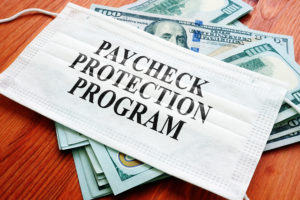A Bethel, Connecticut man who allegedly ran a fake accounting firm in Westchester has been accused of trying to steal a $373,201 Paycheck Protection Plan loan.
Eric James O’Neil, 57, was arrested Aug. 9 at his Bethel home on an arrest warrant and indictment issued by federal court in Boise, Idaho, where the bank that processed the loan is based.

O’Neil formed Accountant “R” Us Inc. in 2013, according to the indictment, and it was based at a shared office space in Tarrytown, according to a state corporation record.
PPP loans were created in 2020 by the federal Coronavirus Aid, Relief, and Economic Security Act to help small businesses retain jobs during the pandemic. Applicants had to certify that they had been in business as of February 15, 2020 and verify their payrolls and revenues.
The loan could only be used for expenses such as payroll, mortgage interest, rent and utilities, and if the loan was used correctly it could be forgiven.
Last year O’Neil applied for a $373,201 PPP loan, “with others known and unknown,” the indictment states.
O’Neil certified that Accountant “R” Us Inc. had been in operation in February 2020, according to the indictment. He submitted a payroll log showing 22 employees and their salaries, as well as  quarterly tax and corporate income tax forms. His profit and loss statements showed $702,500 in gross revenue in the second quarter of 2019, $516,875 a year later and $447,842 in employee wages for both periods.
In fact, the indictment states, Accountant “R” Us did not have any legitimate business operations in 2019 and 2020. There were no employees. The purported tax forms were never filed with the IRS. The profit and loss statements were fraudulent.
The feds claim that O’Neil did not intend to use the funds for the required purposes “because Accountant “R” Us had no employees, payroll expenses, mortgage interest, lease or utility bills.”
His alleged  purpose was to “unjustly enrich himself and others.”
A federal grand jury in Boise indicted O’Neil on July 13, and an FBI agent in New York was given the task of arresting him.
O’Neil had lived in White Plains, according to the agent’s arrest affidavit. She used a criminal rap sheet, New York driver’s license photo, a car registration, and property records of a recent house purchase in Bethel, Connecticut, to verify the identity of a suspect.
She surveilled the Bethel house in July and saw a black Toyota Camry registered to O’Neil and saw a man outside the house who looked like him.
On Aug. 9, the FBI agent went back to the house with other law enforcement officers. She called out O’Neil’s name, according to her affidavit, and a man came to the door and said he was Eric O’Neil. An expired passport was found in the house in the name of Eric James O’Neil.
O’Neil waived his Miranda rights to remain silent and to get an attorney before talking, according to the agent’s affidavit, and agreed to an interview. He allegedly verified that Accountant “R” Us Inc. is his company.
His initial court appearance was held before U.S. Magistrate Judge Paul E. Davison in White Plains federal court. The judge released him from custody on a $50,000 unsecured personal recognizance bond and restricted his travel to the New York City region, Connecticut, Rhode Island and Idaho.
If convicted, the bank fraud charge could result in a prison sentence of up to 30 years.
O’Neil is represented by attorneys Benjamin D. Gold in New York and Angela Chang in Boise, who are part of the Federal Defender program that defends indigent clients. They did not reply to an email request for O’Neil’s side of the story.
The PPP case was investigated by FBI, IRS and postal agents under the U.S. Attorney General’s Covid-19 Fraud Enforcement Task Force.
















